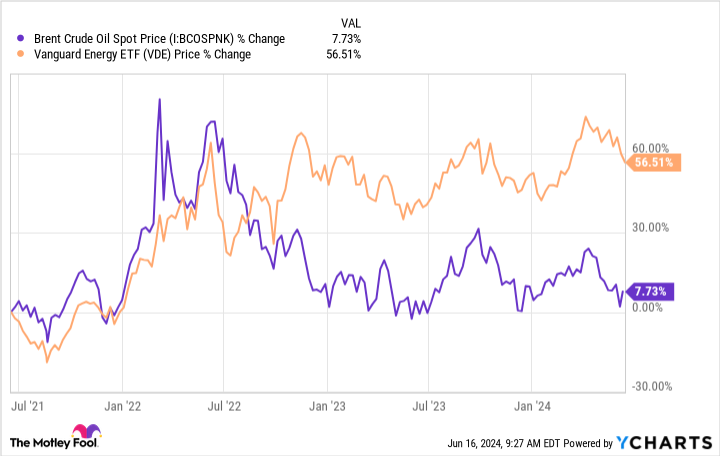What are Oil ETFs?
If you’re looking to diversify your portfolio and capitalize on the energy market’s volatility, oil exchange-traded funds (ETFs) offer an intriguing option. These investment vehicles are designed to track the price of oil futures contracts, providing investors with exposure to the underlying commodity without the hassle of direct ownership.
ETFs offer several advantages over traditional investments in oil. Firstly, they provide instant diversification, allowing you to spread your risk across multiple oil futures contracts. Secondly, they offer lower costs than investing directly in oil, as they eliminate the need for storage, transportation, and insurance. Thirdly, ETFs are highly liquid, making it easy for investors to buy or sell shares at any time during trading hours.
One popular oil ETF is the United States Oil Fund (USO), which tracks the price of West Texas Intermediate (WTI) crude oil. This ETF offers a convenient and cost-effective way to gain exposure to the oil market, and it has consistently outperformed the S&P 500 index over the past decade.
Oil ETFs: A Gateway to the Crude Market
Oil exchange-traded funds (ETFs) have emerged as a popular investment tool, providing investors with an accessible and diversified way to tap into the global oil market. These funds track the performance of a basket of oil-related securities, such as futures contracts or stocks of oil companies, offering investors exposure to the price movements of crude oil. One prominent example of an oil ETF is the United States Oil Fund (USO), which tracks the spot price of West Texas Intermediate (WTI) crude oil.
Benefits of Investing in Oil ETFs
Investing in oil ETFs offers a multitude of benefits for both seasoned investors and those new to the energy sector. These funds provide:
Diversification: Oil ETFs allow investors to diversify their portfolios by adding a commodity asset class that has historically exhibited low correlation to stocks and bonds. This diversification can help reduce overall portfolio risk and potentially enhance returns.
Exposure to the Oil Market: Oil ETFs offer a convenient and cost-effective way for investors to gain exposure to the oil market without the need to purchase physical oil or invest directly in oil companies. These funds provide a liquid and transparent way to track the performance of the underlying oil benchmark.
Hedging Against Inflation: Oil prices tend to rise during inflationary periods, making oil ETFs a potential hedge against inflation. When the cost of living increases, the value of oil often follows suit, protecting investors from the erosion of purchasing power.
Income Generation: Some oil ETFs pay regular dividends to shareholders, providing an additional source of income for investors. These dividends are typically derived from the interest earned on the underlying oil futures contracts or from the dividends paid by the oil companies held in the fund.
Convenience and Liquidity: Oil ETFs are traded on major stock exchanges, making them highly liquid and easily accessible to investors. This liquidity allows investors to enter and exit positions quickly and efficiently, a crucial advantage in a fast-moving market like oil.

No responses yet